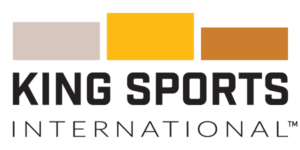Knowing But Not Doing
Is That Really Knowing?
I often hear and read comments about how a person ‘know’ the works of others. This is often based on a person reading a few (typically free) internet articles writing by the person, or even meeting them.
You don’t have to look to far for examples of this, however here is a great example. I read how a young man boasted of a day spent with the late Charlie Francis, a speed coach who was so far ahead of his peers. A few years later I watched that same young man implement a pre-season training program for a provincial team whose playing arena was approximately 100 meters in length. It began with 10 repeats of 1,500 meters and grew weekly to 20 repeats of 1,500 meters. That was not all, just part of training.
Now that approach was about as far away on the continuum from what Charlie espoused as you could go.
So what does it mean to ‘know’? A great saying, attributed to perhaps Zen philosophy, is that:
So why claim one ‘knows’? I assume it gives a degree of perceived credibility to have had some exposure to a respected teacher and to be able to say ‘I know’.
But what does it take to ‘know’ in the Zen philosophy way? To be able to execute a certain training philosophy or method with unconscious competence takes so much more than simply reading the works of a person, or simply spending time with them.
The ultimate test of your ‘knowing’ is to coach live and write spontaneous training programs under the supervision and watchful eye of your teacher. Ideally you then receive feedback from them – in the now. You refine, adjust and do it again. You receive feedback, refine and adjust. And this cycle is repeated. For how long? Probably years.
Imagine proudly enacting a 15 kilometer to 30 kilometer total volume interval program with mixed energy system athletes competing on a 100×50 meter arena under the guidance of Charlie Francis? What do you think Charlie would have said? I can assure you he would not have said ‘Wow! What a great understanding of my training approach you have!’
What I suggest Charlie may have reacted with would be more along the lines ‘Okay, you may have missed the point. Have you ever read the chapter in my book about coaches ploughing fields with Ferraris? What about the chapter on building of very wide pyramids with very little peak?’
There’s a few messages here.
Firstly the loose boast of ‘I know coach x’s works’ is typically issued falsely be individuals wishing to create a perception beyond reality.
Secondly if you want to truly ‘know’ a particular coaches training approach you will need to find an opportunity to test your interpretation under supervision, receive feedback and refine on the basis of this feedback – many times over, typically years.
‘Knowing’ involves a lot more than lip service or short term exposure. True knowing means letting go of your desire to be perceived as a guru and putting on the white belt. I suggest that people who truly ‘know’ make no such inference, in respect of their realization they even with a long history of studying with a coach for the purpose of mastery, they are only scratching the surface.
At KSI we give the coaches in our program the opportunity to experience this ‘knowing’ opportunity – to coach under supervision and receive feedback. The entry to this opportunity is our annual KSI August Camp in Park City each year. If and when a coach rises higher up in the KSI Coaching program you will have other opportunities each year in varying locations.
If you truly want to master the KSI way we make it possible!
Ian King


